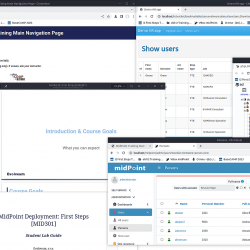Group Management with MidPoint Webinar Summary
The identity governance and administration world is not just about identities and their accounts. It is also about their access rights, e.g., group membership. But how can midPoint adopt the existing access rights, present them as roles, and start managing them? What if midPoint is not allowed to manage some groups at a given time Read more about Group Management with MidPoint Webinar Summary[…]









